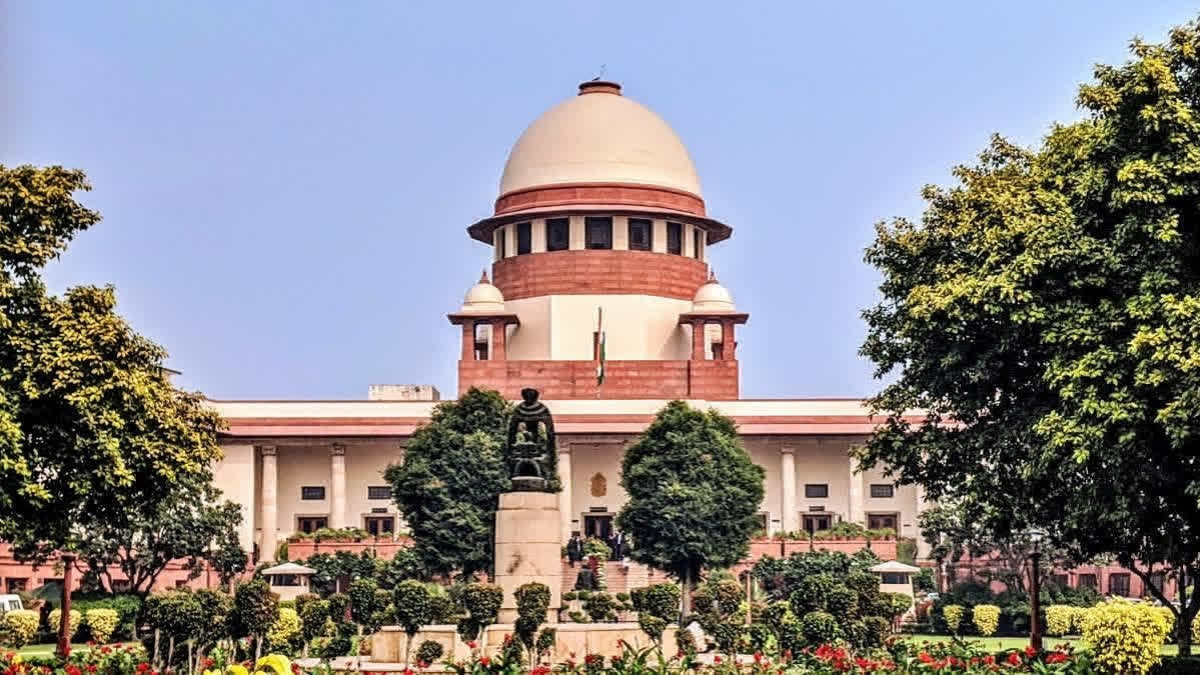New Delhi: The Supreme Court has set free a man, accused in the murder of his wife in 1999, saying that when the conviction is to be based on circumstantial evidence solely, then there should not be any snap in the chain of circumstances.
A three-judge bench comprising justices B R Gavai, P S Narasimha, and Aravind Kumar pointed that failure by prosecution to prove a single circumstance cogently can cause a snap in the chain of circumstances. “When the conviction is to be based on circumstantial evidence solely, then there should not be any snap in the chain of circumstances. If there is a snap in the chain, the accused is entitled to benefit of doubt. If some of the circumstances in the chain can be explained by any other reasonable hypothesis, then also the accused is entitled to the benefit of doubt”.
The bench stressed that a prosecution witness cannot be relied upon if he spoke about involvement of the accused during the trial only and not before the police. “It is trite law that the statement recorded u/s. 313 CrPC cannot form the sole basis of conviction. Therefore, the presence of the appellant cannot be found solely based on his statement, notwithstanding the lack of independent evidence led by the prosecution”, said the bench.
The apex court made these observations while delivering its judgment on January 4, on an appeal filed by Darshan Singh, who moved the court against the Punjab and Haryana High Court's judgment upholding his conviction and life sentence awarded by the trial court.
The apex court acquitted Singh in the murder case of his wife Amrik Kaur by administering poisonous substances. It was alleged that he committed the offence due to an illicit relationship with one Rani Kaur. Co-accused Kaur was acquitted by the high court and the state government did not challenge it before the apex court.
Against the backdrop of a case based on circumstantial evidence, the apex court noted that there were improvements in the statements of prosecution witnesses, sister of the deceased, Melo Kaur and her husband Gurmel Singh. The petitioner argued that his wife was having an illicit affair with Gurmel Singh, and embarrassed with her sister finding it out, she self-administered the poisonous substance and committed suicide.
In the case of Melo Kaur’s testimony, the bench noted that she had heard from her husband that the petitioner and Rani Kaur were seen together in the petitioner’s appellant’s house on May 18, 1999, a day before the incident.
"Both the courts have failed to take notice of the several significant omissions and improvements in the evidence of Melo Kaur and her husband," the bench said.
The bench said the nature of the poisonous substance (aluminium phosphide) is such that it is not conducive for deceitful administration since it carries a pungent garlic-like odour, which cannot go unmissed. “It was suspected that the substance was mixed in tea and served to the deceased since 200ml brownish liquid was found in her stomach as per the PMR. We find it doubtful that the deceased would have been made to consume tea deceitfully given the nature of the substance. Forceful administration of this substance also seems doubtful since there are no injury marks suggestive of a scuffle”, noted the bench.
The apex court said there was alive a strong hypothesis that the deceased had committed suicide, which explanation was led by the appellant in his statement under Section 313 CrPC, and it is sufficient to create a doubt in our minds.
Read More


